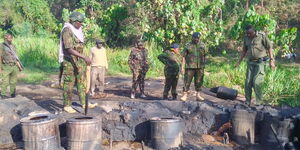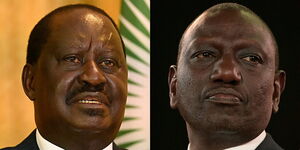The government has now unveiled new guidelines in a bid to streamline public procurement and weed out cartels and brokers who run the show.
The rolled out rules have been published by the Public Procurement Regulatory Authority (PPRA), directing all agencies to adhere to them.
According to the guidelines, any person who intends to register as a procurement agent must apply to the PPRA director-general and pay Ksh50,000.
On top of that, they are expected to be registered by the Kenya Institute of Supplies Management in order to qualify for consideration for government tenders.
As part of the new rules, PPRA has set a mandatory requirement that an applicant for the role of procurement agent must have practical work experience of not less than two years, of which six months should have been in Kenya.
Moreover, agents will be required to apply for their licenses and pay a fee of Ksh5,000. The license will state the specific location of their businesses.
"By producing evidence satisfactory to the Authority that the applicant has paid the prescribed fee of Sh5,0000 for an annual practicing license; and by producing a copy of membership card and practice license for the year of application issued by the Kenya Institute of Supplies Management," PPRA statement read in part.
In February, the National Treasury led by Cabinet Secretary Ukur Yatani announced new tools in the Integrated Financial Management System (Ifmis) to enable suppliers lodge and monitor claims for tender payments remotely, minimising human interaction with government officials who have in the past been on the spot for demanding bribes to facilitate payments.
Treasury argued that ifmis is the nerve center that was meant to enhance efficiency in tendering through proper planning, procurement and expenditure.
The new tools were meant to weed out fraudsters in the award of of tenders who have always exploited suppliers in the disguise of facilitating payments.
"The solution will enhance efficiency in the delivery and payment process as suppliers will not need to physically collect or deliver documents at the Procuring Entity," Treasury PS Julius Muia explained.
"The solution will increase accountability with government officers as it will be easy for the senior management to generate reports on aging invoices based on when the suppliers submitted them," he added.
Middlemen have been blamed for crippling operations in various government agencies. For instance, the Kenya Medical Supplies Authority (KEMSA), accused cartels of various scandals that rocked the agency.












